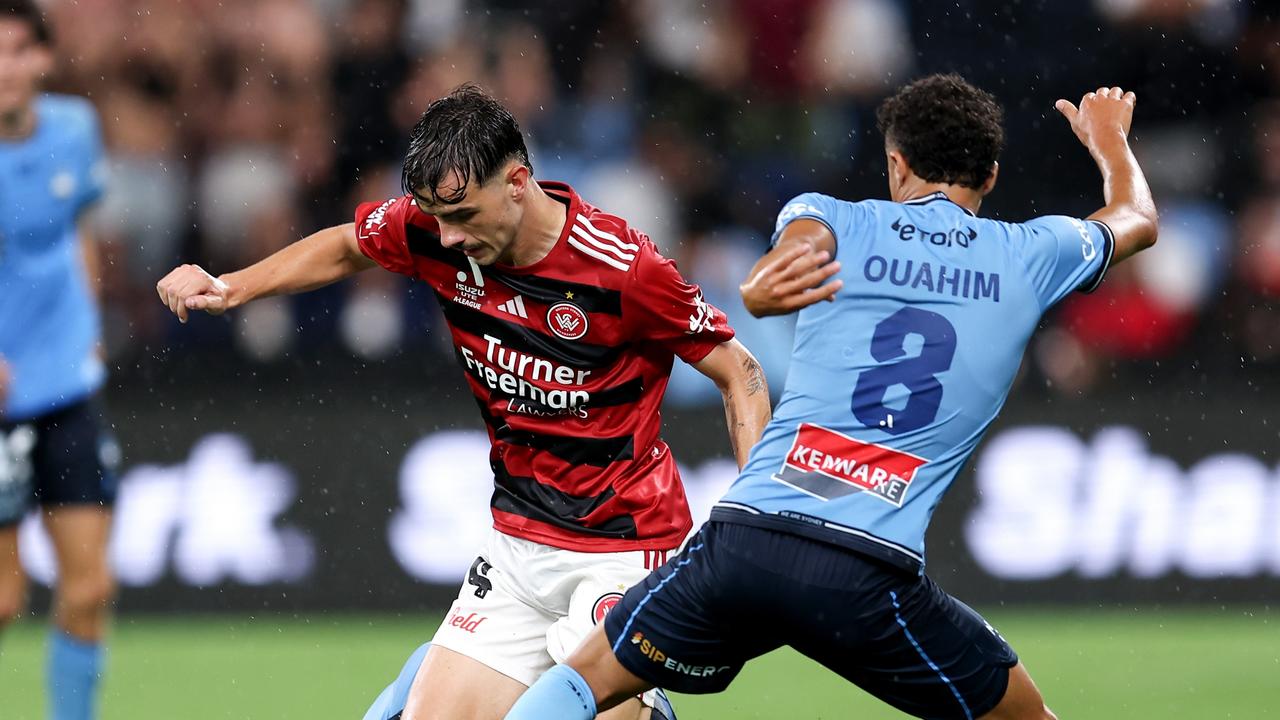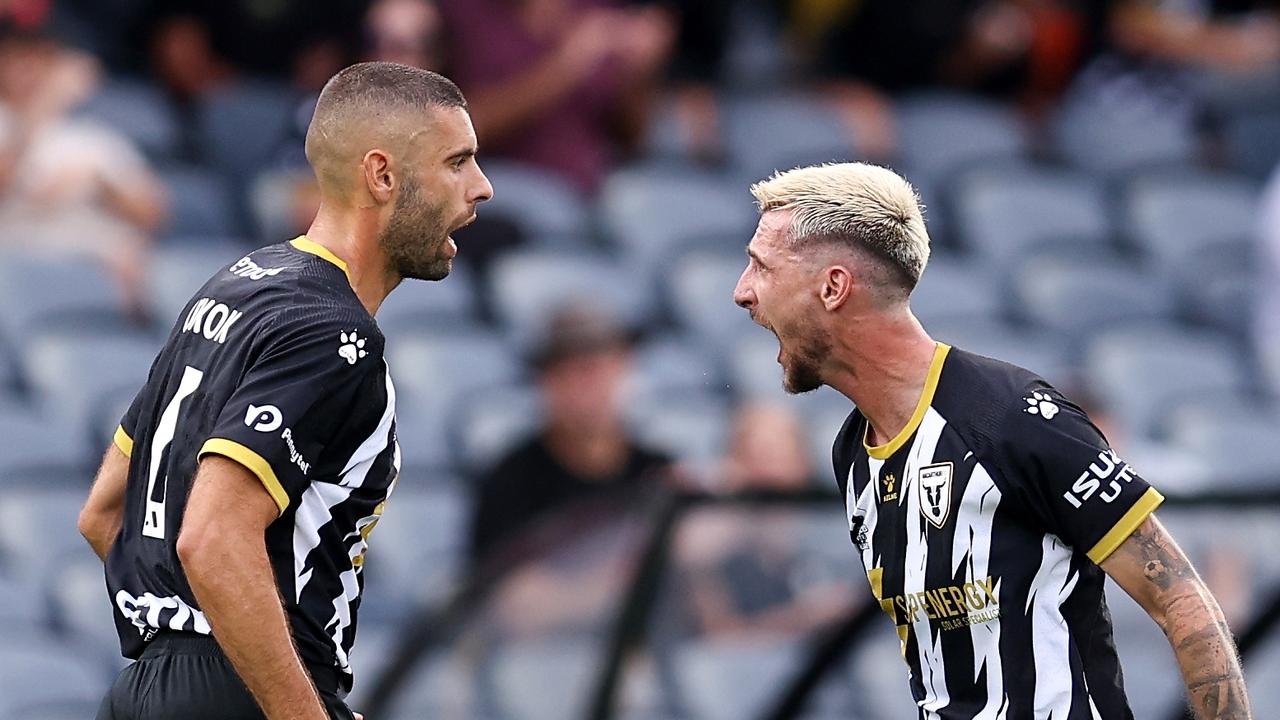FIFA agrees to let Aboriginal and Torres Strait Islander flags fly during the women’s World Cup
After six months of negotiations with FIFA, the sport’s governing body has agreed to allow an important change ahead of the World Cup.
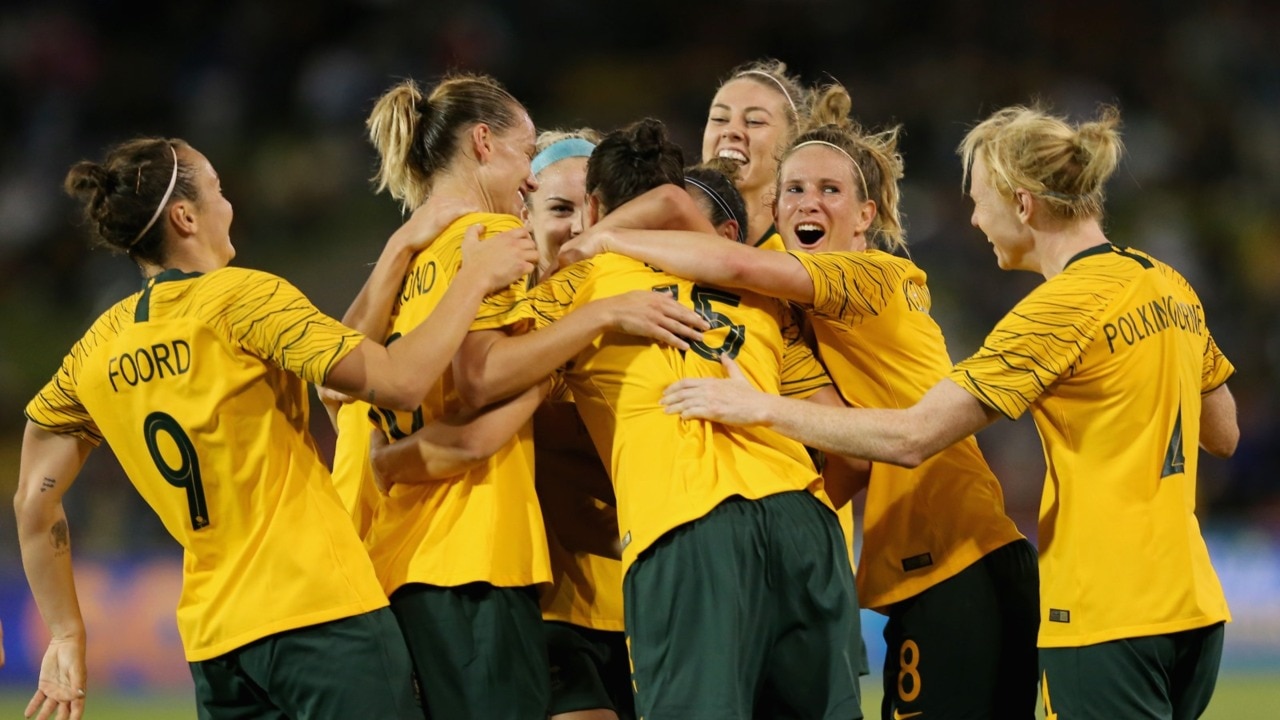
Football
Don't miss out on the headlines from Football. Followed categories will be added to My News.
It was an iconic moment – the Matildas posing with the Aboriginal flag before their opening Tokyo Olympics game – this World Cup, that flag and the Torres Strait Islander flag will proudly fly alongside the Australian flag at every World Cup game.
Back in 2021, the Matildas chose to use the Aboriginal flag for their pre-match team photo as part of the Black Lives Matter movement.
Most other teams took a knee before the first whistle – the Matildas chose to make a bigger statement – driven by their two Indigenous teammates Kyah Simon and Lydia Williams.
It wasn’t far from what their idol Cathy Freeman did after her historic 400m win at the Sydney 2000 Olympics – doing her lap of honour with both flags around the track.
Football Australia CEO James Johnson confirmed that after six months of negotiations with FIFA the Aboriginal and Torres Strait Islander flags would both fly high at each of the 35 matches played across Australia.
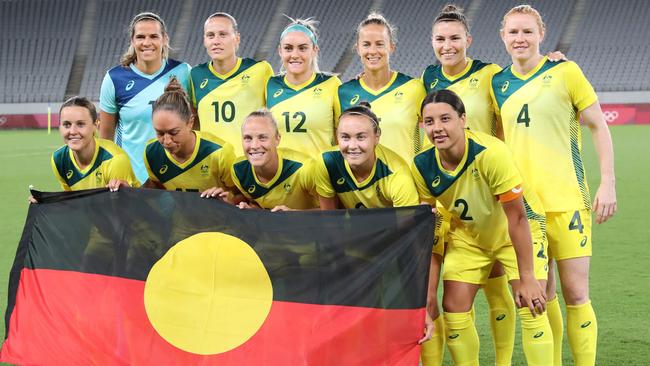
Johnson said it was very much a joint effort with the tournament’s all-women Cultural Advisory Panel, New Zealand Football, the Australian Government, sports Minister and First Nations Minister all playing a role in the lobbying.
The Maori flag will be displayed at each of the games played in New Zealand.
FIFA President, Gianni Infantino, said FIFA recognised the importance of First Nations in Australia and Māori as Tangata Whenua in Aotearoa New Zealand.
“An important step in the delivery and preparation of the tournament was the establishment of an all-women Cultural Advisory Panel to create enduring relationships in partnership with First Nations and Māori communities, and to ensure meaningful engagement and inclusion for all cultural touchpoints of the tournament,” Infantino said.
“This week, during NAIDOC Week in Australia and just before Aotearoa New Zealand’s Matariki celebrations, FIFA has acknowledged the request made by its Cultural Advisory Panel as well as Football Australia and New Zealand Football, which was supported by Governments in Australia and Aotearoa New Zealand. These significant flags express a spirit of mutual respect, national identity, and recognition of Indigenous cultures for our hosts.”
FIFA said both cultures would be on display during the tournament through team welcomes and on matchdays including ceremonies and team captains’ armbands.
During the World Cup FIFA will reveal other initiatives connected to the UN International Day of the World’s Indigenous Peoples (August 9).
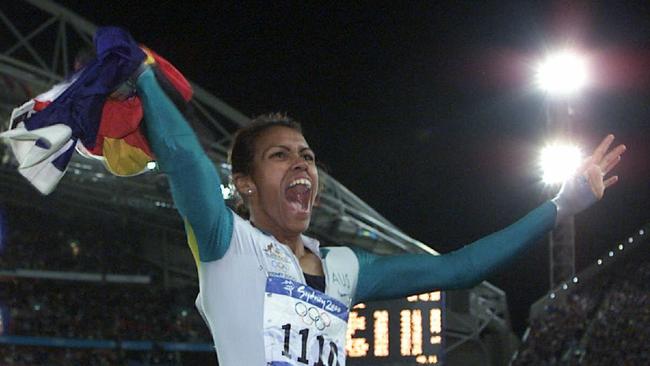
Johnson said their vision had always been to make this historic home World Cup specific to Australia.
“It is why we lobbied so hard to ensure the whole country was represented,” Johnson said.
“We value diversity and we value inclusion. We think this is an extraordinary movement, we think it’s progressive and it’s in line with our vision for the tournament.”
It is a second big win for Football Australia and Football New Zealand who both played a key role in convincing FIFA to backflip on its plan to bring Visit Saudi on board as a major sponsor of the Women’s World Cup.
“I think we are seeing more social issues play out in major tournaments because athletes, as they should, see an opportunity to use the platform to drive social change,” Johnson said.
“The World Cup is about more than just 64 matches. It’s more than the 1.5 million tickets that will be sold or the two billion watching.
“I think it is these sorts of moments that makes us all proud as Australians and really brings Australia together on an issue that is really important to us.”
Johnson said this inclusive decision would help shape the legacy of the World Cup as much as the Matildas’ successes could.
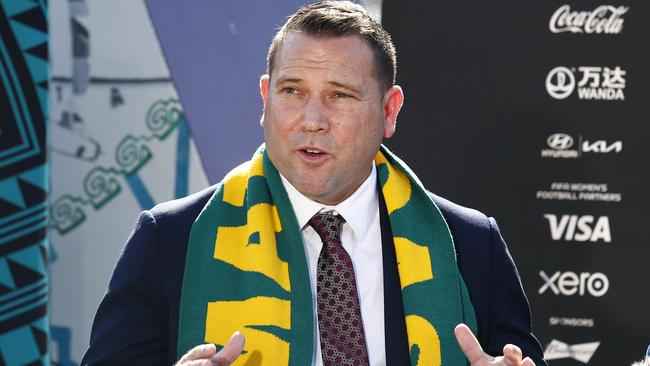
“At any great tournament there are great players, there are always great teams and there’s always a cup at the end,” Johnson said.
“There’s always large attendances, but for me what makes big competitions that little bit extra important is when the hosting country really puts their own specificity on the tournament.
“Through the tournament we can show the values of the country and of the football community and that is why we have pushed these issues, because we want this tournament to be something that we all remember, Australia, New Zealand and the rest of the world, for decades to come.
“I think those memories that we will remember are more than just the 90 minutes on the pitch. It’s these sort of issues that makes us all proud.”
More Coverage
Originally published as FIFA agrees to let Aboriginal and Torres Strait Islander flags fly during the women’s World Cup




